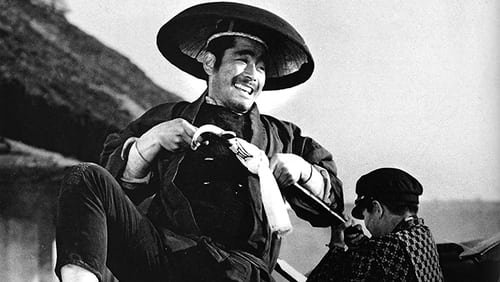
Мацугоро по прозвищу Мухомацу, "Мацу-забияка" (Тосиро Мифунэ) - бедный рикша, известный всему городу буян и задира. После того, как Мацугоро помогает мальчику Тосио, свалившемуся с дерева, родители ребенка, офицер-самурай Котаро Йосиока и его жена Йосико, нанимают его, чтобы возить мальчика к доктору. Когда умирает отец мальчика, рикша становится опорой вдовы и сироты, оказывая всевозможные услуги. Им овладевает глубокое и чистое чувство к матери мальчика. Общение с доброй, отзывчивой женщиной облагораживает рикшу. Он перестает пить, скандалить, старается быть благопристойным. Но он ни на секунду не осмеливается мечтать о взаимности. Мацугоро слишком хорошо известна разница между их социальным классами. Откроет ли он когда-либо свою любовь?

In the Tokugawa Era, the clan of Lord Yagyu has hidden away three scrolls containing clan secrets which, if revealed, would cause revolution and disaster for the clan. The information is divided among the three scrolls, all of which must be possessed for the secrets to be understood. When Princess Yuhime steals the scrolls, Tasaburo, a samurai with magical powers, and his brother Senshiro are sent to retrieve them.

With one of the busiest film industries in the world, Japan was able to submit several films into competition at the 1957 Berlin Film Festival. One of the best of these was Arashi, directed by Hiroshi Inagaki of Rickshaw Man fame. Anticipating Hollywood's Table for Five by nearly a quarter of a century, the film concerns the efforts by a recently widowed high-school teacher to raise his four children alone. Chihu Ryu is terrific as the central character, while Izumi Yukimura is even better as Ryu's eldest daughter. For reasons unknown, Arashi is often omitted from "official" lists of Inagaki's films.


